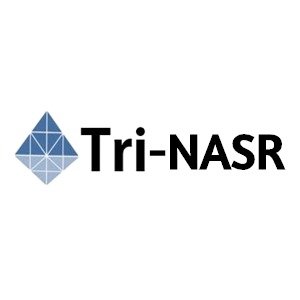Best Biotechnology Lawyers in Nigeria
Share your needs with us, get contacted by law firms.
Free. Takes 2 min.
Or refine your search by selecting a city:
List of the best lawyers in Nigeria
Legal guides written by Adeola Oyinlade & Co:
- Procedure and Requirements for Work Permit and Visas in Nigeria
- The Step-By-Step Procedure of How to Apply for Microfinance Bank License Online in Nigeria
- How to Ensure the Smooth Recognition and Enforcement of Foreign Judgments in Nigeria
About Biotechnology Law in Nigeria
Biotechnology in Nigeria is an emerging field that has gained momentum over the past few decades. It encompasses the use of biological processes, organisms, or systems to manufacture products intended to improve the quality of human life. The Nigerian government has recognized the potential of biotechnology in enhancing food security, healthcare, and the environment. As a result, various policies and regulations have been established to govern research, development, and commercialization in this sector.
The legal framework for biotechnology in Nigeria includes policies such as the National Biotechnology Policy and the regulations set out by the National Biosafety Management Agency (NBMA). These aim to ensure the safe application of biotechnology practices and protect public health and the environment.
Why You May Need a Lawyer
Engaging a lawyer with expertise in biotechnology may be necessary for several reasons:
- Patent and Intellectual Property (IP) Issues: Navigating IP rights is crucial when developing new biotechnologies or products. A lawyer can help in securing patents and addressing IP conflicts.
- Regulatory Compliance: The biotechnology industry is heavily regulated to ensure safety and efficacy. Lawyers can assist with compliance with local laws and regulations.
- Contractual Agreements: Whether it's licensing agreements, partnerships, or research collaborations, legal advice is important to draft and review contracts to safeguard interests.
- Dispute Resolution: In cases of litigation or disputes within the biotech sector, a lawyer's expertise is invaluable for negotiations and legal proceedings.
- Ethical Considerations: Legal advice may be needed to navigate ethical issues related to genetic materials, cloning, or biopiracy.
Local Laws Overview
The legal landscape for biotechnology in Nigeria is shaped by several key regulations and bodies:
- National Biosafety Management Agency (NBMA) Act: This Act provides the legal framework for biosafety management concerning genetically modified organisms (GMOs) and products.
- National Biotechnology Development Agency (NABDA): Responsible for policy formulation and implementation in biotechnology research and development.
- Patent Laws: The Patents and Designs Act governs patents in Nigeria, crucial for protecting biotech inventions.
- Environmental Laws: Compliance with environmental regulations is essential in biotechnology, especially pertaining to GMOs and waste management.
- Health Regulations: The National Agency for Food and Drug Administration and Control (NAFDAC) oversees the regulation of biotech products related to food and drugs.
Frequently Asked Questions
What is the role of the National Biosafety Management Agency (NBMA)?
The NBMA is responsible for the regulation and safety of modern biotechnology practices and GMOs to protect human health and the environment.
How can I patent a biotech invention in Nigeria?
To patent a biotech invention, you must file with the Trademarks, Patents and Designs Registry under the Federal Ministry of Industry, Trade and Investment.
Are there specific regulations for genetically modified crops in Nigeria?
Yes, the NBMA oversees the application, approval, and monitoring of genetically modified crops to ensure biosafety and public acceptance.
What are the ethical considerations in biotechnology?
Ethical considerations include consent management, privacy, ecological impact, genetic discrimination, and equitable access to biotechnological advancements.
Is it necessary to comply with international biosafety regulations?
Compliance with international biosafety frameworks, such as the Cartagena Protocol, is recommended to align with global standards and trade requirements.
Can I conduct research on human genetic materials in Nigeria?
Research involving human genetic materials is subject to ethical guidelines and legal oversight to protect individuals and communities from exploitation.
What are the penalties for non-compliance with biotech regulations?
Penalties vary depending on the violation and can include fines, revocation of permits, or legal actions in accordance with the NBMA Act and other relevant laws.
How do I know if my biotech product is compliant with Nigerian laws?
Engage with legal experts and regulatory bodies like NAFDAC and NBMA for guidance on compliance and stay informed about the latest regulatory developments.
What challenges exist in the biotechnology legal landscape in Nigeria?
Challenges include limited public awareness, rapid technological advancement outpacing regulations, and resource constraints in regulatory bodies.
Are contracts necessary for biotech collaborations?
Yes, contracts are vital to clearly define roles, ownership rights, confidentiality agreements, and dispute resolution mechanisms in collaborations.
Additional Resources
Here are some key resources and organizations for biotechnology in Nigeria:
- National Biosafety Management Agency (NBMA): Central to biotech regulation in Nigeria.
- National Biotechnology Development Agency (NABDA): Facilitates scientific and policy research.
- Federal Ministry of Science and Technology: Provides guidance on scientific innovation policies.
- National Agency for Food and Drug Administration and Control (NAFDAC): Regulates food and drug safety.
Next Steps
If you require legal assistance in biotechnology, consider the following steps:
- Identify Your Needs: Clearly define the legal assistance you require, be it compliance, IP protection, or contract review.
- Consult Legal Experts: Reach out to law firms or lawyers specializing in biotechnology to discuss your situation.
- Gather Documentation: Collect all relevant documents such as patents, contracts, and correspondence for review.
- Stay Informed: Keep abreast of the changing regulatory landscape by attending workshops and engaging with professional communities.
- Collaborate with Authorities: Maintain open communication with regulatory bodies to ensure compliance and obtain necessary approvals.
Lawzana helps you find the best lawyers and law firms in Nigeria through a curated and pre-screened list of qualified legal professionals. Our platform offers rankings and detailed profiles of attorneys and law firms, allowing you to compare based on practice areas, including Biotechnology, experience, and client feedback.
Each profile includes a description of the firm's areas of practice, client reviews, team members and partners, year of establishment, spoken languages, office locations, contact information, social media presence, and any published articles or resources. Most firms on our platform speak English and are experienced in both local and international legal matters.
Get a quote from top-rated law firms in Nigeria — quickly, securely, and without unnecessary hassle.
Disclaimer:
The information provided on this page is for general informational purposes only and does not constitute legal advice. While we strive to ensure the accuracy and relevance of the content, legal information may change over time, and interpretations of the law can vary. You should always consult with a qualified legal professional for advice specific to your situation.
We disclaim all liability for actions taken or not taken based on the content of this page. If you believe any information is incorrect or outdated, please contact us, and we will review and update it where appropriate.
Browse biotechnology law firms by city in Nigeria
Refine your search by selecting a city.














